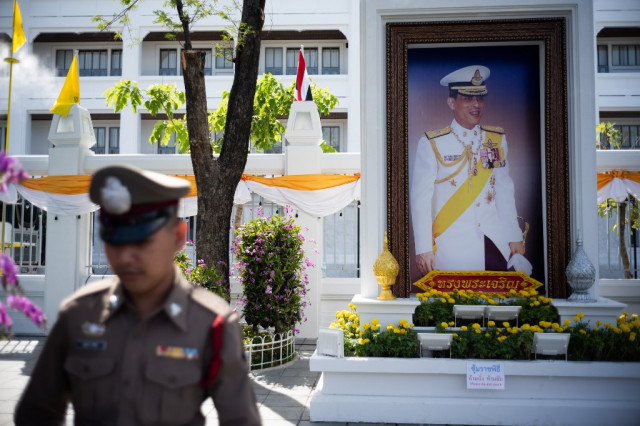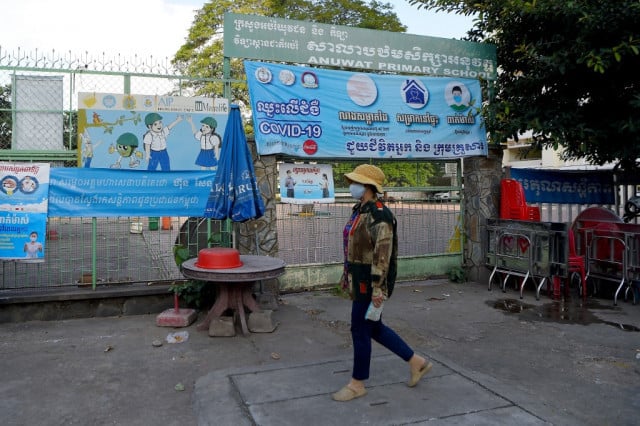Why University Students Should Not Rely on One-Night Policy

- Socheata Ly
- December 1, 2020 8:05 AM
Procrastination has become a typical phenomenon among many students around the world. To put it simply, students tend to put off their work until the last minute of the deadline. Procrastination occurs due to various reasons including laziness, poor time management and personal issues.
This can lead students to pull all-nighters, or in other words, to resort to a one-night policy. Going for the one-night policy seems to be the only way out for those who have very little time left to finish their tasks on time.
Normally, it is okay to stay up all night once in a while to complete our unfinished work, but if we continue to rely on this policy, it will definitely take a toll on our physical and mental health as well as our academic performance. This short article argues why university students should not rely on the one-night policy.
First, pulling all-nighters frequently could worsen our health and physical condition. Staying up all night obviously makes us sleep-deprived. It can pose serious threats to our physical wellbeing. We would most likely feel exhausted and have very little energy to go through our day.
As a result, we are vulnerable to sickness and diseases more often than usual. According to Kimberly Fenn, Associate Professor of Psychology at Michigan State University, sleep deprivation could heavily affect people’s eating behavior and glucose metabolism.
Levels of ghrelin, a hormone signaling hunger to our body, rise, whereas levels of leptin, a hormone signaling fullness, decrease. As a result, we are likely to feel hungry more easily, potentially making us crave for more food intake to feel full. Our body tends to metabolize glucose less effectively as well.
Second, apart from what happens inside our body, our outer appearance is also significantly affected by sleep deprivation. According to a study reported by Huffington Post, for people suffering from sleep deprivation, their faces are in more weary conditions and tend to have redder and more swollen eyes, darkness under eye circles, more wrinkles and droopier eyelids than normal faces of people receiving sufficient sleep.
Additionally, our skin could age more quickly and its ability to revitalize itself from sun exposure is weakened. Not being able to sleep the entire night can also increase pain sensitivity, which could induce acute pain or exacerbate chronic pain, according to Eric Suni, who is health communication specialist at the Washington DC based National Sleep Foundation.
Third, resorting to the one-night policy most of the time could negatively impact our mentality as much as our physical wellbeing, Suni explains. When we are sleep-deprived, many types of thinking and brain functions are adversely impacted. This is not to mention that our attention span and concentration are also compromised. Sleep deprivation hinders emotional intelligence along with how we comprehend and react to our surroundings. Furthermore, it impairs mental place keeping, the ability to adhere to a sequence of instructions or tasks, as well as limits innovative thinking and inventive problem-solving.
Fourth, spending a night with no sleep harms our memory. Suni further adds that sleep deprivation reduces momentary memory bank known as working memory, which is required for our temporary needs. A research study by National Center for Biotechnology Information, reported in Suni’s article, found that sleep-deprived people experienced greater risk of producing incorrect memories, which undermined their longer-term recall of valuable information even after they got back to normal sleeping habit.
In addition, Suni notes that sleep deprivation could ruin our mood and behavior. When we are unable to get adequate amount of sleep, our mood drastically changes for the worse. For instance, we would easily become angry, irritated and depressed, which could dramatically alter our behavior.
We would also act less rationally as we lose the ability to think and reflect properly. Having sleepless nights, moreover, contribute to an increase in the level of hormone cortisol, a type of hormone that is related to stress. Lack of sleep is also tied to anxiety, which could negatively influence both mood and behavior, according to Suni.
Fifth, adopting a one-night policy as a way to complete our tasks is likely to jeopardize our academic performance, thus resulting in a decline in grades. In my opinion, when we are in a rush and put everything together all at once without checking and organizing them properly, the quality of our work may not be good enough to receive high grades.
Obviously, leaving our tasks to the last minute is not really a good idea.
We are prone to make many mistakes while completing our tasks in a hurry such as using false information as well as failing to check for errors and misspellings. Spending more time to work on our tasks through careful research and proper preparation is essential to obtaining high academic performance.
Sixth, sleep deprivation affects our brain functions, impairing our ability to think and focus. Therefore, we may not be able to absorb as much knowledge as we normally do, which may significantly and negatively affect our grades. In some occasions, we may even miss out on important lectures by dozing off in class because of the lack of sleep.
Thacher’s survey of 120 college students found that students who stayed up all night to study were more likely to get lower grade point averages (GPAs) than those who slept properly. Based on the survey, 60% of the students claimed that they relied on the one-night policy at least once while studying in college; they were also reported to receive lower GPAs than their well-rested fellow students.
Overall, the one-night policy seems to do more harm than good, so university students, including Cambodian university students, should try to avoid it. They should not depend on this policy as a habit. To stay away from the one-night policy, there are several methods we can put into use.
We can use self-motivation strategies by rewarding ourselves when we complete our tasks early. We can also adopt a self-reminder approach by constantly reminding ourselves about the consequences we would face when using the one-night policy.
We should try to explore and use any other method that is more suitable and beneficial for ourselves. Refraining ourselves from pulling all-nighters and starting to complete our work as early as possible will help us develop good studying habits, which is vital for achieving better academic grades and performance.
Socheata Ly is an intern at Cambodia Education Forum. She has recently graduated with a bachelor’s degree in International Relations from the Department of International Studies, the Institute of Foreign Languages, Royal University of Phnom Penh.
This article was originally published by Cambodian Education Forum on November 27, 2020.















